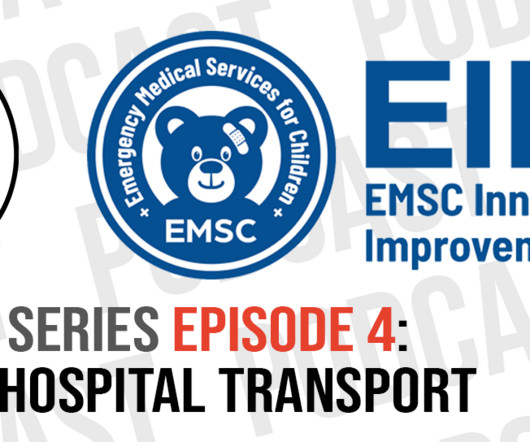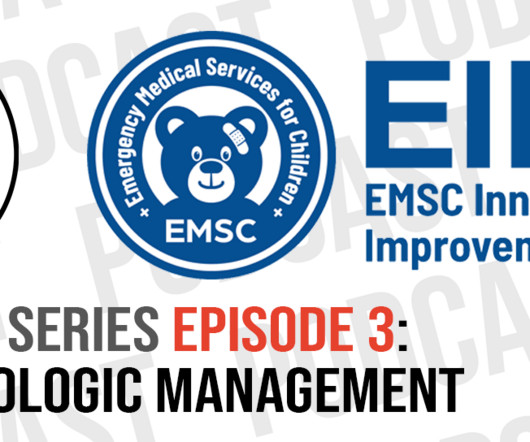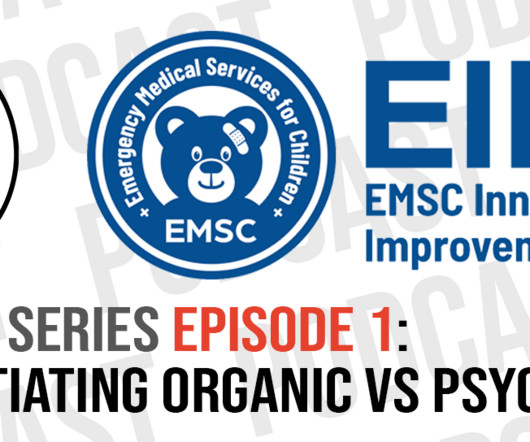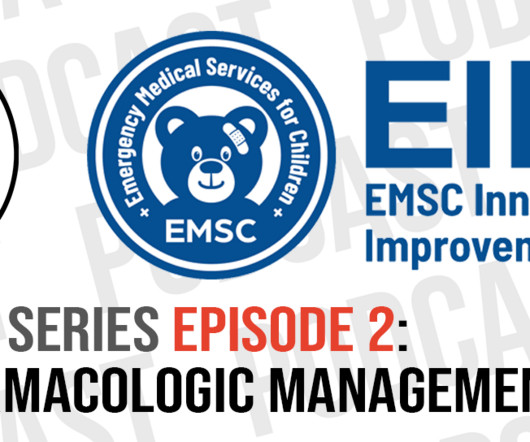Agitation Podcast Series Episode 4: Safe prehospital transport of the agitated child
PEMBlog
JUNE 7, 2023
After listening to this episode you will be able to: Identify unique aspects of the pre-hospital environment that impact assessment and treatment of agitated children Describe the role of EMS personnel and EMS director in the care of agitated children. link] Patient restraint in emergency medical services [Position Statement].















Let's personalize your content